The New Baseline and Funding for Value
One of the frustrations of the last decades of the 20th Century was that the outcomes described in A New Way of Thinking were often seen as off in the distance. In community after community, people were experiencing homes of their own, real learning, real work, and relationships. These achievements, quite rightly, became the cause for celebration. But for many, these are not the outcomes of daily life. They should be the routine, predictable outcomes of a system dedicated to a meaningful life in the community. Self advocates and those who stand beside them are clear – the job is far from over.
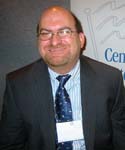
The self advocates movement, people like ourselves, people with disabilities need to have a voice, to have opportunities to have a better life. The Olmstead decision was a wake up call for our movement because people are talking more community services and how we can get services in more self directed ways to empower people to get services themselves.
James Meadours, Past Chair of SABE
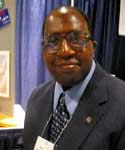
The issues that we are fighting for are transportation, housing, living and jobs. It is very important for a person to have a life of their own, because they want to have an independent life. Everyone wants to live just like a person who does not have a disability. They want friends. They want to get out and do things. If they have chances for money they will have the money to go places.
Victor Robinson, National Co-Chair SABE

People want to get out of Southbury [an institution in Connecticut]. People want to live in the community. People want to own their own money. People want to get better paying jobs than where they are working right now. People are not always ready to speak up. We've got to encourage people to speak up for their rights. To have your advisor or your parents speak up for you, tells me that people are still afraid to speak up.
Thomas McCann, President, People First of Connecticut
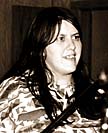
There are still a lot of institutions open that need to be closed.
People need to get the supports that they need, the right supports to be able to live in the community like everybody else.
Some states don't even know what self determination is. They don't have any kind of idea of how that can make a difference in helping people to be able to make their own choices and to live in the community like everybody else. If the money followed the person, people would be able to choose the people they want to work with them, the people they want to support them.
Tia Nelis, Founding member, People First of Illinois
The challenge in these early days of the 21st Century is to see the positive achievements as only the beginning. They should not be seen as the examples of excellence, merely as the baseline upon which to improve and grow.
Questions of people living in their home, the question of people working or going to an inclusive school, don't seem to me to be the questions anymore. Now that we are helping people to do that, we cannot get complacent about just the act, we have to take what is happening to a deeper level, a more exciting, a more richer picture of what that can be.
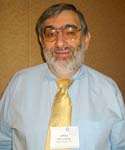
It seems that we get so caught up in thinking that because you are in your own home, so let's clap… end of conversation. As compared to recognizing that it is really the beginning. What does it mean to have your own home? What does it look like? What are the relationships, what are the connections? When you walk into the house, how does it feel? How, in your own personal journey, are you taking it further?
I think that things like micro enterprises and home ownership are the baseline.
So at this point in time, some see the issues of post secondary education, of home ownership, of circles of support, or micro enterprises, as cutting edge. I think they are just given opportunities.
From my point of view, the work will always be based on who the person is, where do they want to go with their life, how can organizations like ours walk with them in a way that people with disabilities and their families find useful and important?
Jeff Strully, Parent, Executive Director, Jay Nolan Community Services, CA
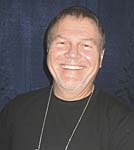
It has come to me that things are really simple. It is about a job. It is about a place to live, and it is about a family. And it is about a community.
Bill Bowman, Santa Ana CA, CEO, Regional Center of Orange County
A new baseline based on values requires a different perspective on the use of public funds. Throughout the movement, there is increasing recognition that public funds must be invested wisely. The principles of self determination include responsibility for the wise use of public funds. Increasingly, in the competition for scarce resources, it is clear that unless there is a common agenda for inclusion, valued outcomes will not result. Too many resources will be devoted to services which create barriers to participation rather than support it.
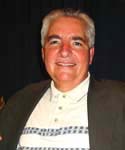
We have been talking about the fact that people should have choice about what to do with public money. In my mind it isn't about choice, it is about the wise investment of public funds, we now know more than we used to know and public investment should be spent on the things that are going to lead to different outcomes.
Derrick DuFresne, President, Community Resource Associates (CRA)

"Stewardship" has to do with value for values. We've forgotten the fact that somebody is paying taxes so that we might do what we do. So in my mind we have to be able to figure out a way, and it is our job as people in service to articulate, value for values.
I think we have every right and responsibility to ask people with disabilities to define for us what those [important and valued] things are.
Bill Bowman, Santa Ana CA, CEO, Regional Center of Orange County
This means that the system must be focused on an explicit set of values combined with the leadership to ensure that those values actually drive what happens in the system.
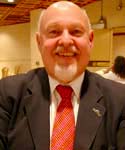
I think that we need to come to grips with the hard facts that values and principles in and of themselves in the absence of phenomenal leadership don't sustain.
Allan Bergman, Anixter Center, Chicago
One of the consequences of continuing to operate a system which fosters both segregation and inclusion is the consistent distortion of good ideas and best practices. The "naming of things" gets confused with the actual value achieved for people with disabilities.

That may be the most important lesson I've observed in the last twenty years, that when there is truly a new emerging best practice that very quickly it gets commercialized, people get on the bandwagon, they repackage it, make it look just a little bit different and then they write a computer program for it so it is easy to do. Then everybody says oh yeah we are going the latest thing. In fact, they are only doing cosmetic surgery on what they have been doing for twenty and twenty five years.
Allan Bergman, Anixter Center, Chicago
